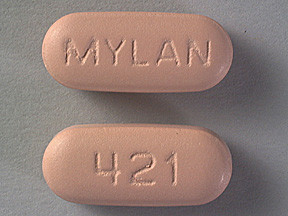METHYLDOPA - ORAL
PHONETIC PRONUNCIATION: (METH-il-DOE-pa)
COMMON BRAND NAME(S): Aldomet
GENERIC NAME(S): methyldopa
Uses
USES: This medication is used alone or with other medications to treat high blood pressure (hypertension). Lowering high blood pressure helps prevent strokes, heart attacks, and kidney problems. Methyldopa works by relaxing blood vessels so blood can flow more easily.
How to use METHYLDOPA - ORAL
HOW TO USE: Take this medication by mouth with or without food as directed by your doctor, usually 2 to 4 times daily. Start this medication or any new dose increase in the evening to decrease the risk of side effects. Also, if the doses of this medication are not equal, take the larger dose at bedtime. The dosage is based on your medical condition and response to treatment. Use this medication regularly to get the most benefit from it. To help you remember, take it at the same times each day. It is important to continue taking this medication even if you feel well. Most people with high blood pressure do not feel sick. When used for a long time, this medication may not work as well and may require different dosing or an additional medication. Talk with your doctor if this medication stops working well (such as your blood pressure readings remain high or increase).
Side Effects
Precautions
Interactions
Overdose
Images
Reviews
Faq for METHYLDOPA - ORAL
Methyldopa is used to treat high blood pressure (hypertension). It is commonly prescribed during pregnancy for women with high blood pressure.
Methyldopa works by relaxing and widening blood vessels, which helps to lower blood pressure. It acts centrally in the brain to decrease the adrenergic outflow, resulting in decreased resistance to blood flow.
Methyldopa is usually taken orally with or without food, usually 2 to 3 times a day or as directed by your doctor. It is important to follow the dosage instructions provided by your healthcare provider.
Common side effects of Methyldopa include drowsiness, dizziness, lightheadedness, headaches, dry mouth, stuffy nose, diarrhea, constipation, or sexual dysfunction. If any of these side effects persist or worsen, it is recommended to consult your doctor.
Yes, Methyldopa is considered safe to use during pregnancy, especially for the treatment of high blood pressure. It is often the first-choice medication because it has been extensively studied and has shown no increased risk of birth defects.
Methyldopa is excreted in breast milk, but it is generally considered safe to use while breastfeeding. However, it is important to consult your doctor before taking any medications while breastfeeding.
Methyldopa may interact with certain medications, including other blood pressure medications, antidepressants, alcohol, and drugs that can cause drowsiness. It is important to inform your doctor about all the medications you are taking to avoid any potential interactions.
Methyldopa may take several weeks before you see the full benefits. It is important to continue taking the medication as prescribed, even if you feel well.
No, you should not abruptly stop taking Methyldopa without consulting your doctor. Sudden discontinuation can cause a rebound increase in blood pressure. Your doctor will provide instructions on proper dose adjustments or discontinuation if necessary.
No, Methyldopa is not addictive. It does not cause dependence or withdrawal symptoms when discontinued.
Disclaimer
IMPORTANT: HOW TO USE THIS INFORMATION: This is a summary and does NOT have all possible information about this product. This information does not assure that this product is safe, effective, or appropriate for you. This information is not individual medical advice and does not substitute for the advice of your health care professional. Always ask your health care professional for complete information about this product and your specific health needs.

No Reviews Yet